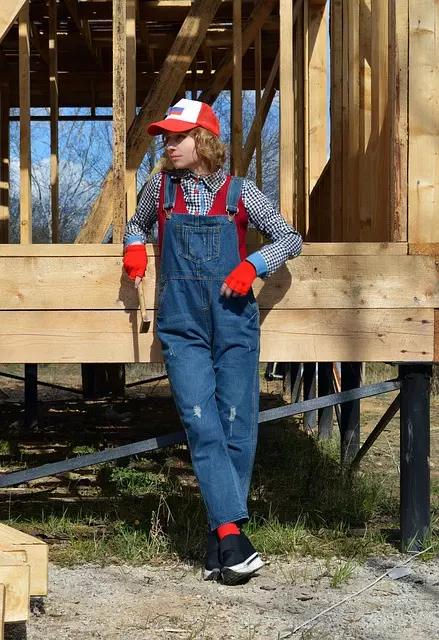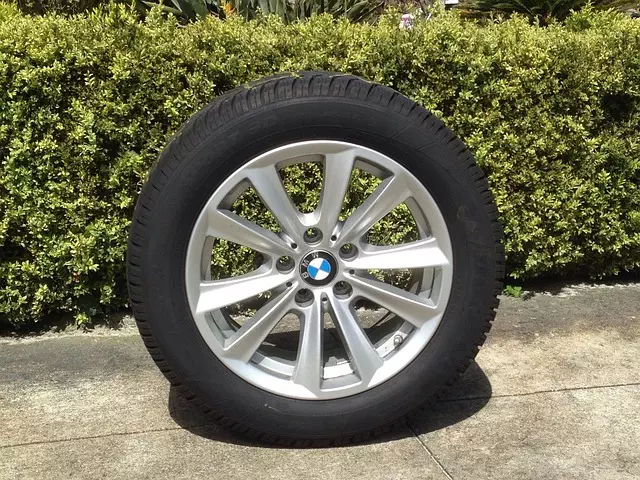Foundation anchor bolts are crucial for structural integrity, especially in seismic or high-wind zones, securing concrete slabs, walls, and other elements at specific angles and depths. Foundation repair with warranty using these specialized bolts addresses issues like cracks, settled foundations, and shifting structures, providing long-term stability and peace of mind. The process involves assessment, bolt selection, precise drilling, threading, and tightening to prevent damage. This method enhances structural integrity, especially in older buildings or renovation projects, and is ideal for disaster-prone regions. Proper installation, materials (like corrosion-resistant steel), and drainage are vital to avoid issues like misalignment, corrosion, or soil movement. Choosing a comprehensive Foundation Repair with Warranty from a reputable contractor protects against future costs associated with foundation problems.
Foundation anchor bolts are essential components in ensuring structural integrity, particularly for older or unstable structures. This article provides a comprehensive guide to understanding and utilizing foundation repair with warranty solutions. We explore the basics of foundation anchor bolts, scenarios demanding repair, their stabilizing role, different bolt types, installation processes, long-term benefits, common issues, and selecting the right warranty—all crucial aspects for a successful and lasting foundation repair project.
Understanding Foundation Anchor Bolts: A Basic Overview

Foundation anchor bolts are critical components in foundation repair and reinforcement projects, offering a robust solution for securing structures to their base. These specialized bolts are designed to withstand immense pressure and stress, making them indispensable when dealing with faulty foundations or new construction that requires added stability. By driving these bolts into the ground at specific angles and depths, professionals can effectively anchor concrete slabs, walls, or other structural elements, ensuring longevity and stability.
The use of foundation repair with warranty featuring anchor bolts enhances structural integrity and provides peace of mind for homeowners or builders. This method is particularly useful in areas prone to seismic activity or extreme weather conditions, where the ability to withstand sudden shifts or high loads is paramount. With proper installation, these bolts create a strong bond between the structure and the earth, preventing future movement or damage that could lead to costly repairs.
When Is Foundation Repair with Warranty Necessary?

When is it time to consider foundation repair with a warranty? If you notice signs of structural damage, like cracks in your walls or uneven floors, it might be an indication that your foundation needs attention. Foundation repair with a warranty becomes necessary when these issues persist and are not merely cosmetic problems. Cracks that exceed 1/4 inch in width, sticking doors or windows, and visible gaps between walls and floors are red flags.
In such cases, professional intervention is key. A structural engineer should assess the severity of the damage and recommend the best course of action, which often includes underpinning or anchoring to stabilize the foundation. Opting for foundation repair with a warranty ensures long-term stability and peace of mind. A reputable contractor will provide a comprehensive solution backed by a warranty, guaranteeing the work for an extended period, typically 10-25 years. This protection is crucial as it safeguards against future costs associated with foundation issues, ensuring you’re not left with unexpected expenses.
The Role of Anchor Bolts in Stabilizing Foundations

Anchor bolts play a critical role in stabilizing foundations, especially in regions prone to seismic activity or high wind loads. These robust fasteners are designed to secure concrete slabs, walls, and other structural elements firmly to the underlying soil or rock strata. By creating a strong mechanical bond, anchor bolts significantly enhance the overall integrity and resilience of a building’s foundation, ensuring it can withstand extreme external forces without compromise.
In the context of foundation repair with warranty, anchor bolts are often employed as a solution for settling or shifting foundations. By drilling deep into the stable layers below and attaching structural components securely, these bolts can effectively stabilize the structure and prevent further damage. This not only ensures the safety and longevity of the building but also provides peace of mind for homeowners, backed by the assurance of a warranty-protected repair job.
Types of Foundation Anchor Bolts and Their Applications

Foundation anchor bolts come in various types, each designed for specific applications in foundation repair and structural stabilization. One common type is the helical bolt, ideal for unstable soils due to its spiral flute design that allows it to cut into the soil as it’s inserted, providing a strong hold. These are particularly useful in areas prone to settlement or heave, ensuring structures remain secure over time.
Another type, the sleeve anchor bolt, uses a plastic or metal sleeve that is split open to grip the concrete or masonry. They offer a more discreet solution for foundation repair with warranty, as they can be installed without disturbing the surface, making them suitable for historical buildings or where aesthetics are a concern. Sleeve anchors are versatile and effective in a range of materials, from concrete walls to stone foundations.
Installation Process: Step-by-Step Guide to Foundation Repair

Installation Process: A Step-by-Step Guide to Foundation Repair
Foundation repair, especially using anchor bolts, is a meticulous process designed to ensure structural integrity and longevity. The first step involves assessing the extent of damage to determine the number and placement of bolts required. This critical analysis guides the selection of the appropriate bolt size, length, and type for the specific foundation needs. Once ready, preparation begins by cleaning the mounting areas, ensuring they are free from debris or existing fasteners.
Drilling is then carefully executed, creating holes precisely aligned with the planned bolt placement. Threaded anchor bolts are inserted, followed by a washer and nut for secure fastening. The tightening process is crucial; it requires careful monitoring to avoid over-tightening that could damage the foundation. Upon completion, each bolt is tested for stability and security, ensuring a robust and reliable repair with a comprehensive foundation repair with warranty.
Benefits of Using Anchor Bolts for Long-Lasting Structural Support

When it comes to ensuring structural integrity and longevity, especially in older buildings or structures undergoing renovation, foundation repair techniques play a pivotal role. One highly effective method is the use of anchor bolts, which offer numerous advantages for long-lasting support. These bolts provide an additional layer of security by creating a permanent connection between existing concrete foundations and new construction elements, such as steel beams or walls.
By employing foundation repair with warranty using anchor bolts, structures can withstand increased lateral loads, including wind and seismic forces. This enhanced stability is particularly crucial in regions prone to natural disasters. Moreover, anchor bolts facilitate the installation of heavy equipment or fixtures, distributing weight evenly across the foundation, thus preventing costly damage over time. Such benefits make anchor bolts an ideal solution for those seeking reliable and durable foundation repair with a warranty.
Common Issues and Problems with Foundation Anchor Bolts

Foundation anchor bolts are a crucial component in structural integrity, but they’re not immune to issues. One common problem arises from improper installation, leading to inadequate holding power or misalignment. This can be due to factors like insufficient bolting torque, using the wrong bolt length for the foundation depth, or incorrect hole placement. Over time, these problems can cause cracks in walls, uneven floors, and other signs of foundation damage.
Another frequent issue is corrosion, especially in regions with high moisture levels or poor drainage. Anchor bolts made from susceptible materials like plain carbon steel can rust, weaken, and eventually fail, compromising the entire foundation system. Additionally, soil movement due to expansive clays or earthquakes can exert immense pressure on anchor bolts, leading to breakage or pull-out. To avoid these headaches, it’s essential to turn to professional foundation repair services that offer solutions with a warranty, ensuring long-term stability and peace of mind.
Choosing the Right Warranty for Your Foundation Repair Project

When considering foundation repair, selecting the appropriate warranty is a pivotal step in safeguarding your investment. A solid foundation repair with warranty offers peace of mind, ensuring that any issues that may arise during the specified period are addressed without additional costs or hassle. These warranties typically cover both materials and labor, protecting you from unforeseen expenses related to repairs or replacements.
Different providers offer varying levels of coverage, so it’s essential to understand what is included and excluded in each plan. Look for warranties that are comprehensive yet tailored to your project’s needs. A reputable foundation repair company should be able to guide you through the options, ensuring you choose a warranty that aligns with the scope of work and provides adequate protection for your home’s foundation.
